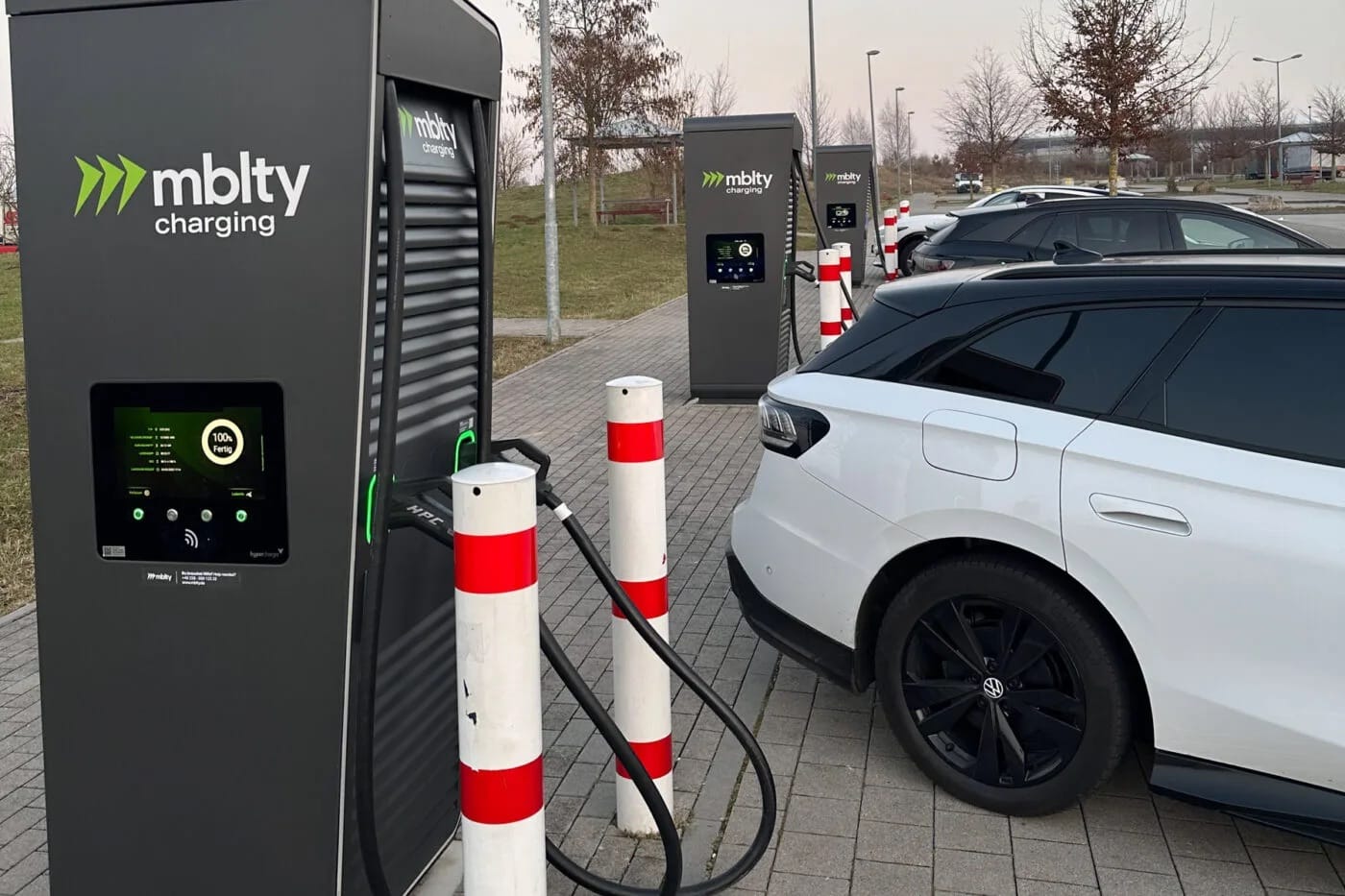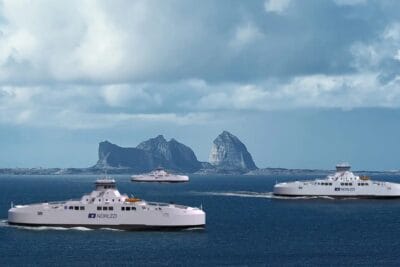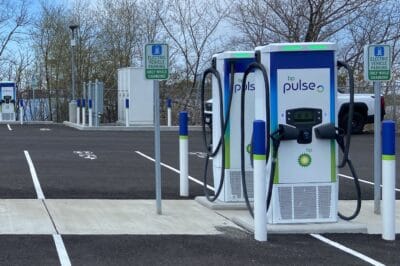Legal dispute over fast-chargers: Fastned loses case against Autobahn GmbH at ECJ
In the legal dispute between Fastned and Autobahn GmbH over the deployment of high-power chargers at serviced motorway rest areas in Germany, the European Court of Justice has now delivered its much-anticipated decision. As already suggested in October 2024 by Advocate General Manuel Campos Sánchez-Bordona, the ECJ ruled in favour of Autobahn GmbH. The court found that a concession contract can be modified under specific conditions without a new procurement process—even if the original concession was granted to an in-house entity which has since been privatised.
The background in Germany is well known: roughly 90 per cent of service areas along German motorways are operated by Autobahn Tank & Rast and Ostdeutsche Autobahntankstellen, based on around 360 concession agreements with the federal government. These concessions have allowed the companies to determine which businesses operate fuel stations or offer food and beverage services. These existing contracts were later extended—without a new tender process—to include the installation and operation of EV charging stations. That meant that the concession holders could also select the charging point operators permitted at each site.
Notably, 280 of these 360 concession contracts were awarded between 1996 and 1998 without a public tender to the predecessors of today’s Tank & Rast and Ostdeutsche Autobahntankstellen. At the time, Tank & Rast AG was fully state-owned but was later privatised. Central to the legal row was a 2022 contract awarded by Autobahn GmbH to Tank & Rast for the rollout of rapid charging infrastructure at rest areas.
The key question: What are the ‘certain conditions?’
Fastned Deutschland GmbH, the German subsidiary of Dutch charge point operator Fastned, filed suit in German courts over the lack of a public tender for these charging contracts—initially alongside Tesla Germany, which later withdrew from the proceedings. Fastned has argued that the expansion of the charging infrastructure at German motorway service stations must be open to competition – i.e. via EU-wide award procedures so that the best offer can prevail.
Since 2022, the case has been with the Higher Regional Court (OLG) in Düsseldorf, which referred several legal questions to the ECJ in July 2023. These concerned EU rules governing the award of concessions that—due to their value—are generally subject to competition. One such rule allows amendments to existing concessions without a new procedure if the changes are necessitated by unforeseen circumstances. Fastned argued this exception should not apply to concessions originally granted without a tender.
On this point, the ECJ agreed with the opinion of the Advocate General and favours the position of Autobahn GmbH. On another point, however, the Luxembourg judges deviated from the recommendations of the Advocate General, who had suggested that the Court should limit itself to clarifying the questions submitted.
ECJ calls for more detailed review by German court
However, the ECJ actually goes further in the judgement and also comments on the exact conditions that must be met in order for the concessions to be amended retrospectively without a tender. And it is precisely this that could influence the outcome of the ongoing proceedings before the Düsseldorf Higher Regional Court – despite the general view that the subsequent amendment is possible subject to conditions.
From paragraph 72 of the verdict onwards (which has so far only been published in German and French), the ECJ judges in Luxembourg turn to the Higher Regional Court judges in Germany with a request for examination. Specifically, it concerns the three conditions that are necessary for the subsequent amendment of the concession to be lawful – the new circumstances must not have been foreseeable for a ‘contracting authority fulfilling its duty of care’, must not change the overall character of the concession in question and may increase the value of the contract ‘in principle by no more than 50% of the value of the original concession’.
“In that context, as regards the first of those conditions, it must be made clear that, contrary to the view apparently taken by the referring court, it cannot be considered that the amendment of a concession ‘became necessary’ solely because its contractual provisions do not cover the situation arising from the unforeseeable circumstances which have arisen,” the verdict states. And also on the third point (the increase in the value of the contract by a maximum of 50 per cent), it is ‘for the referring court to determine […] whether the amendment at issue in the main proceedings satisfies the criteria set out in the preceding paragraph’.
The Düsseldorf Higher Regional Court must thus clarify in its judgement whether the specific conditions are met in this case. The judgement from Düsseldorf will thus be relevant – and ‘hopefully quick’ according to Fastned. After all, the company is still ‘focused on customers‘, as head of Fastned Germany, Linda Boll, explains to electrive. “Charging should be convenient and affordable, even on the motorway,” says Boll. “That’s why we are sticking to our position and continuing to fight for a free tender for charging infrastructure on motorways. No matter what happens, the new federal government has a duty to build customer-friendly charging infrastructure for the future.”
The company made a similar comment in an official statement, which was also only available in German to electrive at the time of writing: “We at Fastned are satisfied with the judgement of the European Court of Justice. The ECJ gives the Düsseldorf Higher Regional Court the clear task of looking deeper into the facts of the case and examining whether the expansion of fast-charging infrastructure at the service stations operated by Tank & Rast should have been put out to tender instead of expanding the existing petrol station concessions to include fast charging without a tender,” it says.
“The case will therefore have to be heard further by the Düsseldorf Higher Regional Court, as the fundamental questions of the legal dispute have not yet been answered. The Düsseldorf referral order did not allow the ECJ to answer the substantive questions directly, but referred to formal aspects of European law. We remain confident, as the European Commission has also clearly sided with us in the course of the proceedings.”
“Judgement is consistent from the ECJ’s point of view”
Lawyer Christian Mayer, partner at the German law firm Noerr, comes to a slightly different conclusion. He describes the judgement as ‘consistent from the ECJ’s point of view’.
“The aspects the ECJ points out are questions of fact that only the Higher Regional Court can examine and not the ECJ. For the ECJ, the only question was whether this exemption is applicable or not,” Mayer explained to electrive. “Whether the conditions for the exception are actually met must be assessed by the Düsseldorf Higher Regional Court.”
So at the moment, both sides can feel a bit like winners. The federal government and Autobahn GmbH, because the previous procurement practice was not declared illegal. And Fastned, because the proceedings are not yet over – the Düsseldorf Higher Regional Court must examine the conditions in detail. And factors such as the increase in value by a maximum of 50 per cent are not trivial, as the value of charging infrastructure is likely to increase with the rising proportion of electric cars and the European CO2 target for new registrations in 2035 – but to what extent and at what point in time.
However, there are also two losers: electric mobility and customers. “The short-term consequences for electric mobility are clear: the standstill in the expansion of charging points along motorway service areas [in Germany] will continue. A clear decision by the ECJ in one direction or the other would have ended the standstill,” says Mayer. “If the ECJ had declared the allocation practice illegal because the exemption would not have been applicable, the process would have been over immediately, at least for the federal government.”
Proceedings slowed down EV infrastructure expansion
Until the legitimacy of expanding the concessions to include EV charging is decided once and for all, hardly any new charging stations are built at motorway rest areas. In March 2024, it emerged that Autobahn GmbH and Tank & Rast had temporarily halted further rollout efforts. Had the court declared the no-bid awards unlawful, all affected charging sites could have faced legal reversal—a risk no operator wanted to take, especially those investing in large HPC hubs.
The impact is still visible. Some charging hubs remain smaller than necessary, even though sites had been prepared for expansion. Autobahn GmbH has replaced ageing triple chargers with modern Alpitronic Hypercharger HYC300 units, but these are limited to 50 kW to remain compliant with current concession terms—despite being capable of 300 kW. Moreover, the German federal government has excluded serviced motorway rest areas from its initial charging network for electric trucks, focusing instead on unserviced lay-bys until legal clarity is achieved.
curia.europa.eu (ECJ statement; PDF), curia.europa.eu (ECJ ruling from 29 April; in German)





0 Comments